The Silly Seasons Fun & Adventure
Monday, January 03, 2011
 Shaowu, Fujian, China
Shaowu, Fujian, China
Hey Hey and a Big G'Day toya,
Blessed is the season which engages most of the world in a conspiracy of drunkenness, lewd behavior, forgotten expenditure, over eating, lasciviousness, extreme stupid dancing and overpriced beer goggles.
A week after the fat guy sung we all fell into our New Years Drunken Cocoon and when we woke, the merger was complete and once again we were at the beginnings of a new year during which most will do all of the above but over a twelve month period and not in a single night as we do on New Year’s Eve. Here in Shaowu we spent the week shuffling between huge dinners with Yan and Crew at Yujin’s parent’s restaurant and even bigger and more lavish dinners with the school and yet another with Jessica’s (my old student) parents and assorted school leaders.
New Years was spent between bars, one of which provided an assortment of eye candy!
I’m thinking that it was not only a great Silly Season but also a rather delicious one!
So, as for the New Year or 2011 as it is now known?
I have only nine more working days until I begin my 2011 'Winter Beers N Noodles Adventure’ which will last until the 20th February. I’ve had a few ideas since my last post, a mountain or two then a ‘walkable’ river along with some ancient bridges after which maybe I’ll head to an island that has an ancient temple for the sea Goddess along with the southern Shaolin Kungfu Temple after which maybe, just maybe I’ll head back inland and take in some more Hakka Peoples Earth Buildings.
Maybe though, none of the above will actually occur as JiangNi still doesn’t know when her ‘week off’ begins, or ends for that matter and spending time with her is the most important thing for the up and coming Spring Festival.
So, as for the Old Year or 2010 as it is still known?
Travel wise it was one of the best years I’ve had so far.
School wise, half of it really was totally wasted and sucked.
But then I returned here to Shaowu with my friends and a great school!
Beers N Noodles toya…..shane
PS:Photos can be found beneath all text.
___________________________________________________________
The soundtrack to this entry was by Dream Theater.
The album was ‘Black Clouds & Silver Linings’.
____________________________________________________________
Now For a Bit on Christmas in China
How do the Chinese celebrate Christmas?
Less Important Than Chinese New Year, But Still Sometimes Celebrated
China is a large country of 1.2 billion people, most of whom live in the country side and most of whom live in the eastern edge of the country. The Chinese represent many ethnic groups with many different traditions. Despite communist rule, there are still many Christians in China, but even these celebrate Christmas with different twists depending upon region, clan, and history.
Some Christians in China celebrate by lighting their houses with paper lanterns and decorating their Christmas trees, which they call "Trees of Light," with paper chains, paper flowers, and paper lanterns. The children of China hang stockings and await a visit from Dun Che Lao Ren (dwyn-chuh-lau-oh-run) which means "Christmas Old Man.".
Since the vast majority of the Chinese people are not Christian, the main winter festival in China is the Chinese New Year. This event takes place toward the end of January. Now officially called the "Spring Festival," it is a time when children receive new clothing, feast on great foods, receive new toys, and enjoy fireworks displays. Ancestor worship is an important aspect of the New Year celebration. Portraits and paintings of ancestors are brought out and hung in the main room of the home.
Now For a Bit on New Year’s (for my Chinese friends)
Yan Tan, January 1.
Chinese name for the Gregorian New Year's Day
On the modern Gregorian calendar, it is celebrated on January 1, as it was also in ancient Rome (though other dates were also used in Rome). In all countries using the Gregorian calendar, except for Israel, it is a public holiday, often celebrated with fireworks at the stroke of midnight as the New Year starts.
January 1 on the Julian calendar corresponds to January 14 on the Gregorian calendar, and it is on that date that followers of some of the Eastern Orthodox churches celebrate the New Year.
January 1 marks the end of a period of remembrance of a particular passing year, especially on radio, television, and in newspapers, which usually starts right after Christmas Day. Publications often have year-end articles that review the changes during the previous year. Common topics include politics, natural disasters, music and the arts, and the listing of significant individuals who died during the past year.
Often there are also articles on planned or expected changes in the coming year, such as the description of new laws that often take effect on January 1.
This day is traditionally a religious feast, but since the 1900s has become an occasion for celebration the night of December 31, called New Year's Eve. There are often fireworks at midnight. Depending on the country, individuals may be allowed to burn fireworks, even if it is forbidden the rest of the year. It is also a memorable occasion to make New Year's resolutions, which they hope to fulfill in the coming year; the most popular ones in the western world include stopping smoking or drinking alcohol, or to lose weight or get physically fit.
Other Entries

 Shaowu, Fujian, China
Shaowu, Fujian, China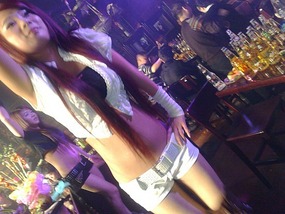

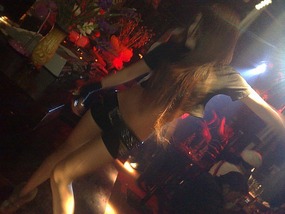
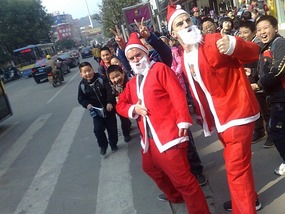

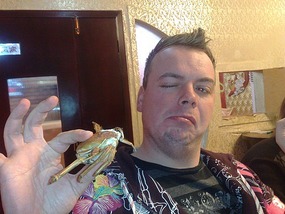
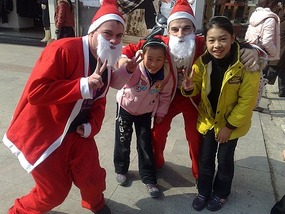
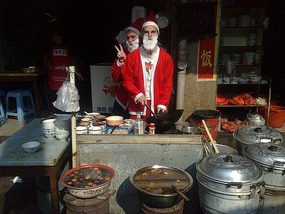
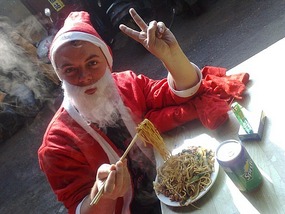
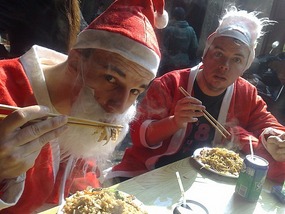
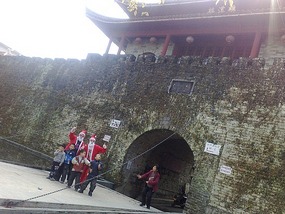
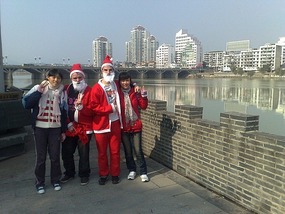
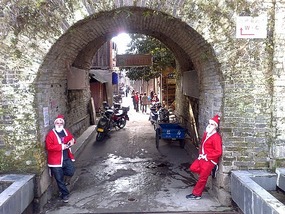
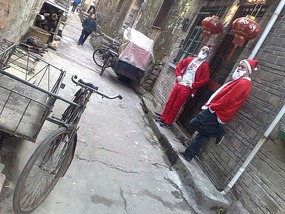
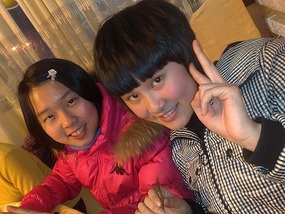
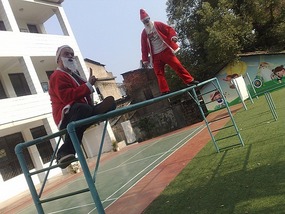
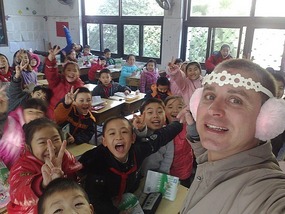
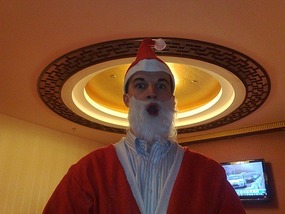
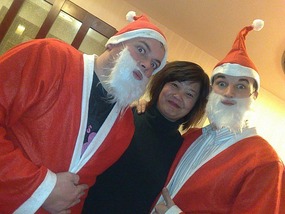
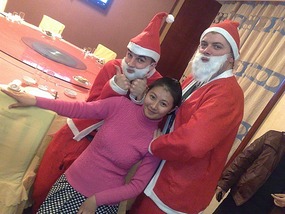
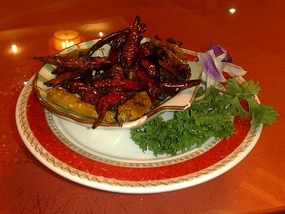
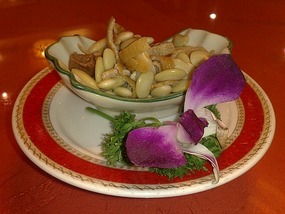
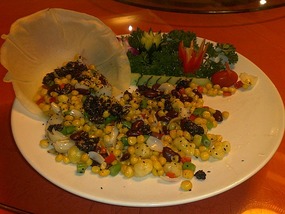
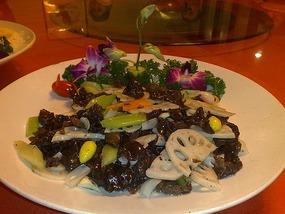
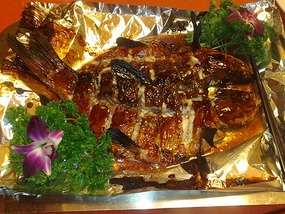
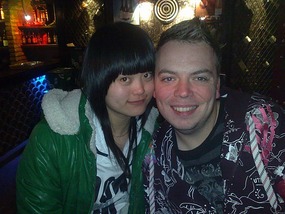

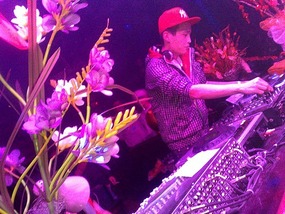

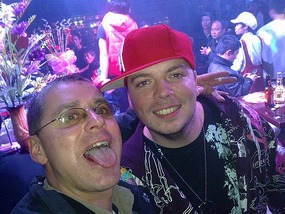

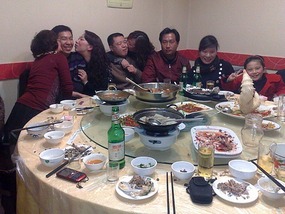
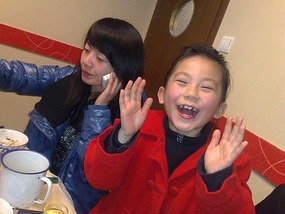
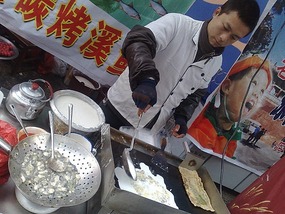
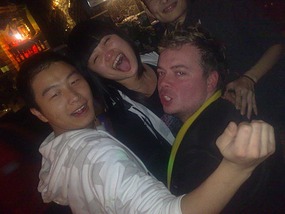
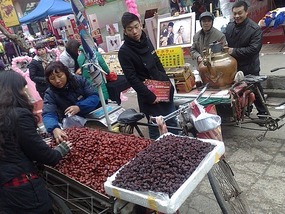

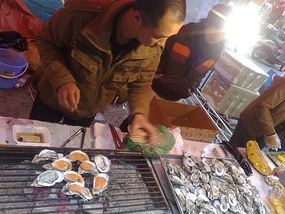
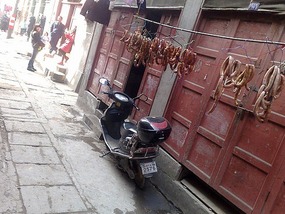
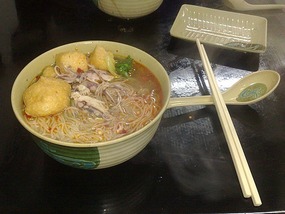

2025-05-22